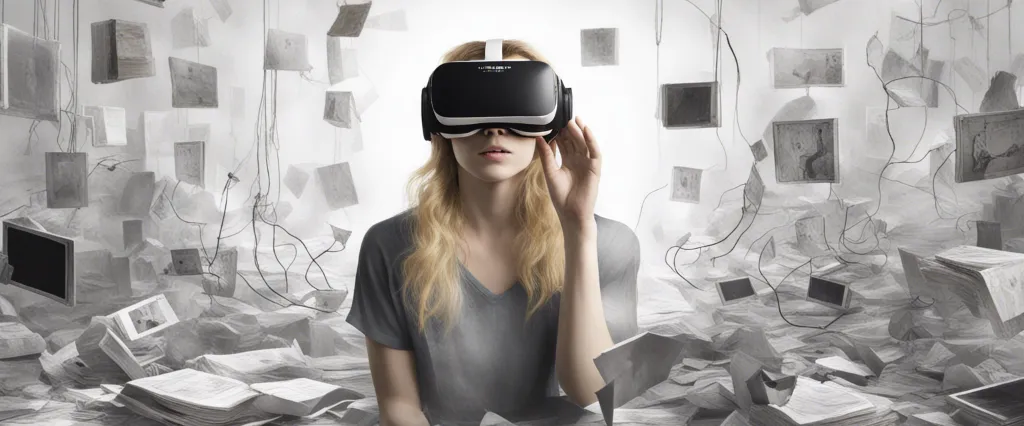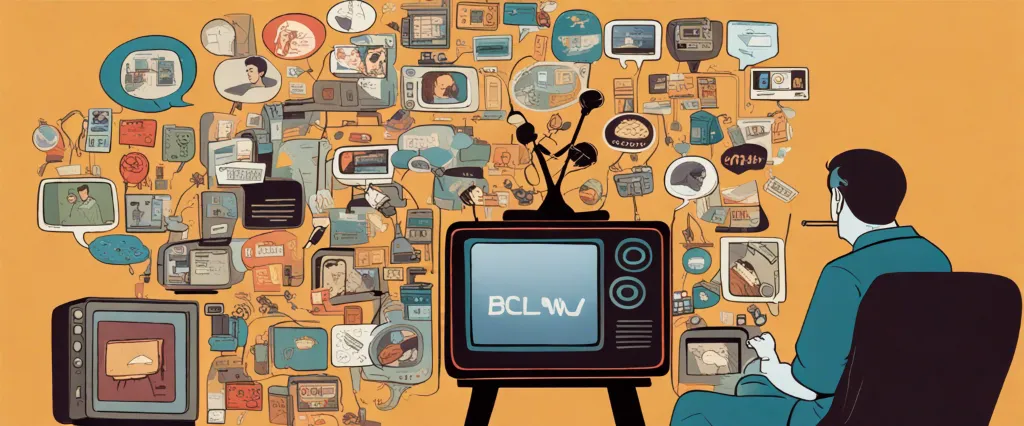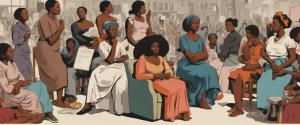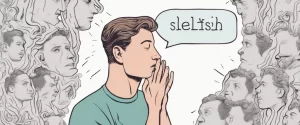
In an increasingly connected and technologically advanced world, our lives have become intertwined with the immersive realms of gaming and digital media. As we navigate through the vast expanse of endless information and entertainment, two captivating books shed light on the profound impact these realms exert on our reality. “Reality is Broken” by Jane McGonigal and “The Attention Merchants” by Tim Wu offer distinct yet interconnected perspectives on the enthralling spheres of virtual experiences and the attention-seeking mechanisms that dominate our digital age.
“Reality is Broken” is Jane McGonigal’s exploration of the transformative potential of gaming and its ability to improve our lives. With a deep-rooted conviction that gaming has the power to solve real-world problems, McGonigal argues that rather than being an escape from reality, games can act as a catalyst for positive change. By harnessing the inherent motivational characteristics of games, she believes we can tackle global challenges such as climate change, poverty, and social isolation. Through compelling examples and research, McGonigal renders a persuasive argument that the key to fixing our reality lies within the principles and practices of gaming.
On the other end of the spectrum, “The Attention Merchants” by Tim Wu delves into the ominous world of advertising, media manipulation, and the commodification of our attention. Wu exposes how businesses and enterprises have strategically harnessed our ever-dwindling attention spans to drive profit and mold our preferences. From the early days of mass-printed newspapers to the pervasive influence of social media platforms, Wu chronicles the incessant battle for our limited attention, shedding light on the ethical implications and potential societal consequences of the attention industry. Engrossed in a compelling narrative, Wu uncovers the hidden mechanisms that shape our desires and behaviors, leaving readers questioning the true value of our digital engagement.
While both books explore the multifaceted relationship between technology and society, they adopt distinctly different perspectives – one extols the virtues and potentials of gaming to enhance our reality, while the other presents a cautionary tale of the perils and exploitation embedded within our attention economy. Through a comparative study of “Reality is Broken” and “The Attention Merchants,” this research aims to critically analyze the intersection of virtual experiences, human behavior, and societal implications, recognizing the nuanced complexities embedded within our digital age.
By examining the arguments and insights within these captivating texts, a deeper understanding can be achieved regarding the ways in which gaming and media consumption shape our perceptions, motivations, and ultimately, our reality. Through this comparative exploration, we hope to unravel the intricate tapestry of our modern existence, analyzing the potential avenues for growth, critique, and meaningful engagement within the realms of gaming and digital media.
Brief Summary of Two Books
Reality is Broken by Jane McGonigal
“Reality is Broken” by Jane McGonigal explores the concept of how video games can make the real world a better place. McGonigal argues that games provide positive experiences and fulfill certain needs that reality often fails to address. She examines the fundamental principles behind successful games and the psychological benefits they offer, such as a sense of control, the ability to collaborate, and the feeling of being part of something greater.
McGonigal explores the potential of these gaming principles to solve real-world problems, such as poverty, climate change, and social inequalities. She introduces the concept of “massive multiplayer online games” (MMOs) and “alternate reality games” (ARGs), explaining how they have already been utilized in various contexts, including crowd-sourced scientific research and community building. McGonigal also presents examples of games designed specifically to address social issues, showcasing their impact and effectiveness.
Furthermore, the author discusses the idea of “harnessing the power of games” by incorporating game-like elements into real-world activities, such as education, work, and personal development. She believes that by adopting gameful attitudes and incorporating game mechanics, people can become more motivated, engaged, and fulfilled in their daily lives. McGonigal outlines various strategies and practices that individuals and organizations can employ to create a gameful experience, such as setting goals, providing immediate feedback, and creating a supportive community.
Overall, “Reality is Broken” presents a compelling argument for the positive potential of games in transforming the real world. It encourages readers to embrace the power of games, not only for entertainment but also as a tool for personal growth, social change, and improving the overall human experience.
The Attention Merchants by Tim Wu
“The Attention Merchants” by Tim Wu explores the history and impact of advertising and attention-grabbing techniques on modern society. Wu traces the evolution of attention merchants, from the early newspapers that sought to capture people’s attention, to the rise of radio, television, and the internet as mediums for advertisers. The book delves into the strategies and tactics employed by these attention merchants to capture and monetize people’s attention, often at the expense of their privacy and well-being.
Wu also discusses the psychological and societal implications of advertising, highlighting how it shapes our desires and values, and influences our behavior. He raises concerns about the commodification of attention, noting that as attention becomes a valuable currency, it can be manipulated and exploited by advertisers and other influential actors.
Moreover, the book explores the symbiotic relationship between attention merchants and media platforms, emphasizing how they work together to capture and monetize user attention, often through targeted advertising. Wu addresses issues such as clickbait, fake news, and the manipulation of public opinion, shedding light on the ethical and social consequences of attention-driven business models.
Wu concludes by urging readers to become more aware of the attention economy, to recognize the power dynamics at play, and to reclaim their attention and autonomy from the clutches of attention merchants. By doing so, he argues, individuals can regain control over their own minds and help shape a society that values attention as a precious resource, rather than a mere commodity.
Comparison between Two Books

Similarities in Social Change
In both “Reality is Broken” by Jane McGonigal and “The Attention Merchants” by Tim Wu, social change is explored as a common theme. Although the books take different angles and approaches, they share several similarities in their discussions of how social change can be influenced and impacted.
Firstly, both books highlight the power of technology as a driver of social change. McGonigal focuses on the potential of games and gamification to create positive change in society. She argues that harnessing the immersive and motivational aspects of gaming can lead to improved education, mental health, and even problem-solving on a global scale. Similarly, Wu examines how the rise of the advertising industry and attention economy has been fueled by technological advancements, leading to significant societal transformations. Both authors recognize that technology plays a pivotal role in shaping social behavior and can be a catalyst for change.
Another similarity between the books is the emphasis on the manipulation of human attention for social change. McGonigal points out that games are designed to capture and sustain players’ attention, allowing for the creation of more engaging and impactful experiences. Similarly, Wu delves into the attention economy, where advertisers and media platforms vie for users’ attention by employing various strategies to maximize their profits. Both books stress the need to understand and harness attention in order to drive social change in a focused and effective manner.
Furthermore, both authors highlight the importance of collective action and collaboration for social change. McGonigal argues that games have the potential to bring people together and foster cooperation, allowing individuals to work towards common goals. She explores how gaming communities can be a platform for social activism and problem-solving. Similarly, Wu examines the power of social movements and collective action in challenging and reforming structures, specifically within the realm of advertising and media. Both authors emphasize the significance of collaboration and the potential for collective efforts to bring about social change.
Lastly, both books acknowledge the ethical dimensions and potential pitfalls associated with leveraging social change. McGonigal discusses the need for responsible design and implementation of gaming experiences to avoid manipulation or unintended consequences. Wu raises concerns about the exploitation of attention by advertisers and the impact it has on individuals and society as a whole. Both authors emphasize the importance of considering the ethical implications of leveraging technology and attention for social change.
Overall, “Reality is Broken” and “The Attention Merchants” examine social change through different lenses, with one focusing on gaming and the other on the attention economy. However, the books converge in their exploration of technology’s role, the manipulation of attention, the significance of collective action, and the ethical considerations tied to social change.
Divergences in Social Change
Reality is Broken by Jane McGonigal and The Attention Merchants by Tim Wu are two books that examine the effects of technology and digital media on society. While they share a focus on the impact of these phenomena, they diverge in their perspectives on social change.
In Reality is Broken, Jane McGonigal argues that the way we engage with the virtual world can actually lead to positive social change in the physical world. She contends that by tapping into the intrinsic motivation and engagement present in games, we can address significant global challenges such as poverty, education, and environmental issues. McGonigal presents the concept of “gameful thinking” as a solution, urging readers to apply game-design principles and mechanics to real-life situations. She believes that the collaborative nature of gaming, combined with its ability to foster resilience and problem-solving skills, has the potential to transform society for the better.
On the other hand, The Attention Merchants by Tim Wu takes a more critical stance on the impact of technology and digital media on social change. Wu explores the history of attention manipulation and argues that the attention economy, driven by advertising and data-gathering, has fundamentally altered our society. He suggests that the constant bombardment of stimuli and the commodification of attention have resulted in shortened attention spans, decreased empathy, and a lack of critical thinking. Wu raises concerns about the capitalist exploitation of attention, where media platforms exploit human vulnerabilities for financial gain. He posits that this attention-grabbing nature of digital media impedes social change by diverting our attention away from important issues and towards commercialized content.
In essence, while Reality is Broken portrays gaming and virtual worlds as catalysts for social change, The Attention Merchants takes a more cautionary view, emphasizing the negative consequences of the attention economy on societal progress. McGonigal’s perspective suggests that gamification and gameful thinking can motivate individuals to engage with real-world problems, while Wu’s perspective focuses on how the attention economy distracts individuals from engaging in meaningful social change.

Conclusion
Both Reality is Broken by Jane McGonigal and The Attention Merchants by Tim Wu are highly acclaimed books in their respective fields. Ultimately, the choice of which book is more worthy of reading depends on your personal interests and what you hope to gain from the reading experience.
Reality is Broken explores the potential of video games to create positive changes in the world. It delves into the concept of “gamification” and how game design principles can be applied to real-life situations, such as education, healthcare, and problem-solving. This book is a great choice if you are interested in the potential of games for personal growth and societal improvement.
On the other hand, The Attention Merchants focuses on the attention economy and the strategies used by advertisers and media companies to capture and monetize our attention. It delves into the history of advertising, media, and technology to shed light on how our attention has become a valuable commodity. This book is a good choice if you are interested in the psychology of advertising and the impact of media on our lives.
Ultimately, both books offer valuable insights and are worth reading. Consider your interests and what you hope to gain from the reading experience to choose the one that aligns more with your preferences.


